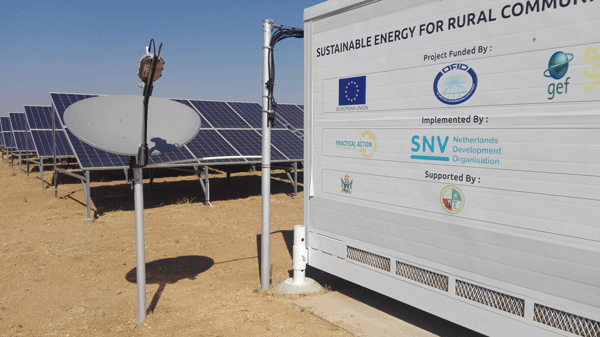
By Sindiso Dube
Villagers in rural Gwanda in Matabeleland South have been urged to embrace renewable energy sources that give them cheaper and reliable energy as well as mitigating climate change.
The district is known for its high temperatures and over 300 days of sunlight in a year.
Elizabeth Gulugulu Machache of African Youth Initiative on Climate Change Zim (AYICC) said there were more advantages in the shift to the use of renewable energy such as the creation of ‘green jobs’ for the youths.
“Zimbabwe has an advantage due to our climate, we are ready for the use of renewable energy what’s needed is to invest in solar energy projects,” Machache said.
“The use of green energy has many advantages- such as clean and cheap energy as well as the introduction of ‘green jobs’, thus leading to job opportunities for young people in Zimbabwe.
“Adoption of green energy means we will have to close many coal mining companies that have been causing immense climate damage and shift to clean green engineering sector.
“We will have solar panel skills development centres, green entrepreneurship, and solar panel sells.
- Chamisa under fire over US$120K donation
- Mavhunga puts DeMbare into Chibuku quarterfinals
- Pension funds bet on Cabora Bassa oilfields
- Councils defy govt fire tender directive
Keep Reading
“Women who are always left out of the energy circle and regarded as the end-users of energy for instance; using firewood, will also be included in the matrix, this source of clean energy is inclusive of females, males, and children.
“I urge the country and the people of Gwanda to look into the use of renewable energy because this is where we are going, globally.”
Gwanda South MP Abdenico Ncube said they were looking for ‘good Samaritans’ to help them set up solar projects.
“The use of renewable energy such as solar power is the best way to go,” said Ncube who is also Matabeleland South Provincial Affairs minister.
“It is clean and cheap to use than electricity which is in short supply.
“We hope we can have more of such projects in our areas such as Gwanda and Beitbridge.
“We hope to get good Samaritans to invest in our area will go a long way in assisting our homes, schools, hospitals, and farms.
“The biggest hindrance to embracing the renewable energy global movement so far is the lack of financial resources.” .
Quizzed to comment on how Chivayo’s scandalous solar project had affected the people of Gwanda, Ncube said…
Meanwhile, villagers in Gwanda called on the government to assist in the setting up of solar plants in their area to improve agriculture production.
“Our area (Gwanda) is prone to droughts and the introduction of solar-powered projects will avert power shortage and increase access to power will enhance food security and better adaptation to climate change,” said Thabo Nleya from Manama.
More than 10 000 people have benefited from Zimbabwe’s first solar-powered mini-grid in rural Gwanda.
The setting up of the Mashaba solar-powered mini-grid was funded through a four year 7. 1 million euro project for Zimbabwe and Malawi under the European Development Fund (EDF), the main instrument for European Union (EU) aid for development cooperation in Africa, the Caribbean, and Pacific (ACP Group) countries.
This project, which was funded to the tune of 2,7 million euro, seeks to help the local community to survive droughts, enhance food security, and improve livelihoods through connecting them to the Mashaba mini-grid. The micro-grid has 400 solar panels and storage batteries.It has become the face of Zimbabwe’s future electricity supply system which will help increase access to clean energy and reduce power problems facing the country.
As much as the Mashaba plant could be key to helping Zimbabwe achieve its climate change targets of reducing carbon emissions by 2030, environmentalists highlighted the need to embrace more green energy.
With developed countries having embraced renewable energy, the industry is reported to be creating more job opportunities than energy sources such as oil and gas.










